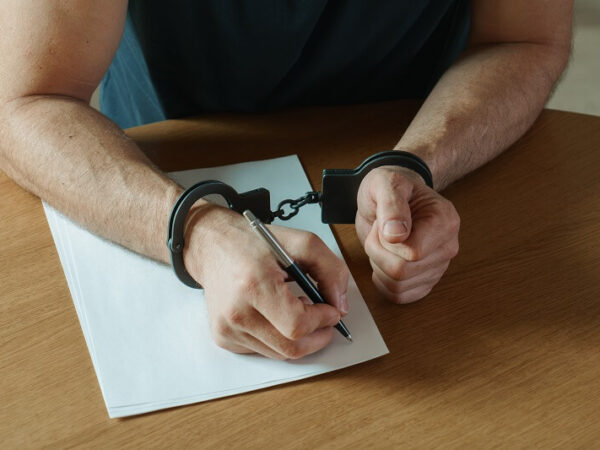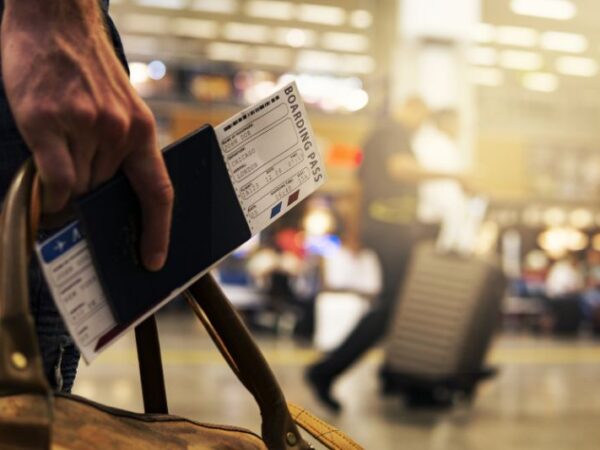A number of countries around the world will simply not allow convicted criminals or terrorists to enter their jurisdiction. This is regardless of how minor the crime was committed or how long ago the offence occurred. Canada, for example, takes a hard line against visitors with even the smallest criminal convictions, and it is very difficult for visitors with a criminal record to obtain the Canadian eTA necessary to enter the country. On the other hand, there are countries that pay little heed to minor infractions of the law and only prohibit entry to those convicted of serious or violent offences.
Any conviction for a crime will be an issue when applying for any form of travel approval whether it is a visa or electronic travel authorisation. Obviously, the more serious the offence and the longer the time spent in prison, the greater the likelihood of having a visa application denied. Serious offences such as murder, rape or kidnapping, or a history of repeated criminality, will almost certainly result in a denial but for less serious offences a refusal is not always the outcome.
The application process for a Schengen Visa entails a detailed background check on the applicant and the chances of a criminal record going undetected are slim and even less for the most serious of crimes. Regardless of the country in which the crimes took part, there will be a record in some database somewhere, and the Schengen Visa authorities will find it. Applying for a Schengen Visa while having a criminal record will not necessarily end in a refusal but the outcome will depend on the severity of the crime and the applicant’s honesty when completing the application process.
Infraction, Misdemeanour or Felony?
Many countries divide criminal offences into three categories: infraction, misdemeanour and felony. How difficult or easy it is to secure a Schengen Visa will depend on which of these categories the conviction falls and whether or not time was spent in prison.
Infraction
An infraction is the most common offence that turns up in security checks when applying for a Schengen Visa. Infractions are the most minor of offences and rarely result in jail time but rather in financial penalties or suspended sentences. However, a recurring history of infractions, or failure to pay fines, may result in a prison sentence which can adversely affect a visa application.
Typical infractions include:
- Motoring offences
- Littering
- Noise violations
- Building code breaches
- Non-payment of fines
Not all infractions will necessarily appear in security checks but this is quite likely to occur and may lead to further scrutiny of the applicant.
Misdemeanour
Of a more serious nature, and punishable by prison sentences, are misdemeanours which usually involve crimes of violence, property damage, public safety offences and breaches of public order. Punishment for a misdemeanour is usually a fine, probation or community service but more serious offences can draw a prison term of up to twelve months.
The most serious misdemeanours are rated as Class 1 and include:
- Physical assault
- Harassment
- Acts of vandalism
- Trespass
Prison sentences arising from misdemeanours may result in visa refusals from some countries depending on the seriousness of the charges and sentence.
Felony
The most serious types of crime are felonies, which are punishable by anything from a year in prison to a life sentence or even capital punishment in some jurisdictions. The list of felony crimes is long, but among the most serious are:
- Murder
- Serious sexual offences
- Rape
- Drug trafficking
- Kidnapping
- People smuggling
It is impossible to have a felony record expunged and such records and convictions will invariably show up on a security or police background check. Although an applicant with a felony record can submit an application for a Schengen Visa this is extremely unlikely to be granted.
Schengen Checks
It may seem somewhat lax, but there are no questions about previous criminal convictions on the Schengen Visa application form. In addition, it is very rare that visitors arriving in the Schengen Area are questioned on this important matter either. However, this does not mean that a criminal can easily acquire a visa and enter the Schengen Area at will.
The standard visa application form will require an enormous of personal and professional data to be supplied and the information supplied will enable the Schengen authorities to run an extensive series of background checks on the applicant.
All Schengen Area member states have access to a number of centralised databases where the applicant’s name and other supplied information can be verified. These include:
- SIS, the Schengen Information System is a vast storehouse of previous visa holders biometrics and photographs and is used to confirm a person’s identity.
- VIS, the Visa Information System is a central system connecting all Schengen countries with countries outside the European Union and contains a history of all previously issued visas.
- Entry/Exit System, an automated system to record non-EU visitors every time they cross one of the European Union or Schengen Area external borders.
- ECRIS, the European Criminal Records Information System, stores information on all persons with criminal records from across the whole of the European Union.
These systems are used to detect not just convicted criminals but also those who pose a security risk, have previously broken visa terms and conditions as well as those who may be likely to overstay their allotted time within the Schengen Area.
ECRIS Hit
ECRIS was originally intended for checking the backgrounds of third-country nationals, that is, citizens of those countries that are not members of the European Union. Today, the system encompasses the entire world and is used when assessing applicants for Schengen Visas and ETIAS, the new European Travel Information and Authorisation System which is currently being introduced.
ECRIS performs several functions:
- Searches for criminal records
- Stores applicants’ photos and biometrics
- Maintains records of applicants’ possible links to terrorism
- Checks for stolen passports and identities
The system is also routinely used to check on persons wishing to work with children or in security, the police force or the military.
ECRIS will also run an applicant’s name and details against the ETIAS Watchlist. Most searches through ECRIS will run smoothly with no hits registered. However, should any red flags be raised in the course of a background check then the system will return a “Hit” and the application (and applicant) will be subjected to further scrutiny.
Different Standards
Every Schengen and European Union country operates its own standards when it comes to who may be granted entry and who will not. While a Schengen Visa application currently does not seek information regarding an applicant’s criminal or terrorist history, this does not mean it is simply ignored. The background checks carried out are usually sufficient to detect suspicious activity, and slipping through undetected is the exception rather than the norm.
Applicants are thoroughly checked before the personal interview, which is the last step in the application process. It is here that embassy or consular officials will raise any issues or concerns they may have and the applicant is expected to (and should) answer all questions honestly or risk a refusal.
The ETIAS application form, on the other hand, has a section that specifically focuses on any criminal or terrorist history. An ETIAS will be a mandatory requirement for non-EU visitors to the European Union (which includes 23 of the 27 Schengen member states) and any untruths or false information uncovered during the application process will inevitably end in a rejected ETIAS application.
A criminal record does not automatically mean that a Schengen Visa or ETIAS is unobtainable. In most cases, a minor offence committed a number of years in the past that resulted in less than two to three years of jail time will not disqualify an applicant, although some countries such as France, Denmark, Norway and Sweden are more stringent and are known to have a high Schengen Visa application rejection rate.




